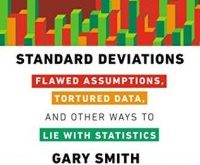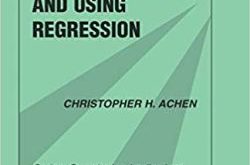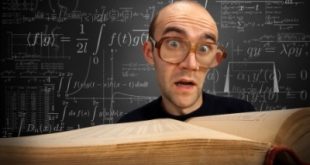Data without theory is always treacherous Data without theory can lead to bogus inferences … Before being comforted or alarmed, consider whether it makes sense to extrapolate. Is there a persuasive reason why the future can be predicted simply by looking at the past? Or is that wishful thinking? Or nothing at all? … Remember that even random flips can yield striking, even stunning, patterns that mean nothing at all … A statistical comparison of two things...
Read More »Monte Carlo simulations and NHST
Monte Carlo simulations and NHST In many social sciences p-values and null hypothesis significance testing (NHST) are often used to draw far-reaching scientific conclusions — despite the fact that they are as a rule poorly understood and that there exist altenatives that are easier to understand and more informative. Not the least using confidence intervals (CIs) and effect sizes are to be preferred to the Neyman-Pearson-Fisher mishmash approach that is so...
Read More »Publishing ‘hacked’ p-values — the chocolate hoax
Publishing ‘hacked’ p-values — the chocolate hoax [embedded content]
Read More »Revisiting the foundations of randomness and probability
Revisiting the foundations of randomness and probability Regarding models as metaphors leads to a radically different view regarding the interpretation of probability. This view has substantial advantages over conventional interpretations … Probability does not exist in the real world. We must search for her in the Platonic world of ideals. We have shown that the interpretation of probability as a metaphor leads to several substantial changes in...
Read More »Significance testing and the real tasks of social science
Significance testing and the real tasks of social science After having mastered all the technicalities of regression analysis and econometrics, students often feel as though they are masters of the universe. I usually cool them down with required reading of Christopher Achen’s modern classic Interpreting and Using Regression. It usually gets them back on track again, and they understand that no increase in methodological sophistication … alter the...
Read More »Econometric beasts of bias
Econometric beasts of bias In an article posted earlier on this blog — What are the key assumptions of linear regression models? — yours truly tried to argue that since econometrics doesn’t content itself with only making ‘optimal’ predictions,” but also aspires to explain things in terms of causes and effects, econometricians need loads of assumptions — and that most important of these are additivity and linearity. Let me take the opportunity to elaborate...
Read More »Econometrics — the path from cause to effect
Econometrics — the path from cause to effect [embedded content] In their book — Mastering ‘Metrics: The Path from Cause to Effect — Joshua D. Angrist and Jörn-Steffen Pischke write: Our first line of attack on the causality problem is a randomized experiment, often called a randomized trial. In a randomized trial, researchers change the causal variables of interest … for a group selected using something like a coin toss. By changing circumstances randomly,...
Read More »Random walks (student stuff)
Random walks (student stuff) [embedded content]
Read More »Pólya urn models mathematics
Pólya urn models mathematics [embedded content]
Read More »The limits of probabilistic reasoning
The limits of probabilistic reasoning Almost a hundred years after John Maynard Keynes wrote his seminal A Treatise on Probability (1921), it is still very difficult to find statistics books that seriously try to incorporate his far-reaching and incisive analysis of induction and evidential weight. The standard view in statistics — and the axiomatic probability theory underlying it — is to a large extent based on the rather simplistic idea that more is...
Read More » Heterodox
Heterodox







